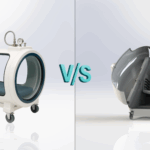 The Pharmaceutical Industry Association of South Africa (PIASA) has welcomed the findings of the Council for Medical Schemes (CMS) annual report 2010/2011 which support the view that medicines are not a key cost driver in the private healthcare funding environment.
The Pharmaceutical Industry Association of South Africa (PIASA) has welcomed the findings of the Council for Medical Schemes (CMS) annual report 2010/2011 which support the view that medicines are not a key cost driver in the private healthcare funding environment.
Less encouraging, however, is the pattern whereby patients are increasingly carrying the burden of their medicine costs themselves.
[Isn’t it time to look for alternative therapies to assist with the prevention of disease rather than treating the symptoms? Our ozone steam sauna can be that solution.]
The report shows that the overall spend on medicines by schemes has risen only slightly despite a 3.1% increase in medical scheme beneficiaries.
Medical schemes pay less, members pay more
“In fact, according to the report, the spend per beneficiary on medicines has actually come down during the past year,” says Vicki St Quintin, chief operating officer of PIASA. “When corrected for inflation, the spend per beneficiary on medicines is at the same level it was 10 years ago in 2001.”
Overall, expenditure on medicines dispensed by pharmacists and providers other than hospitals increased by only 5.6%, compared to the overall increase of 11% on benefits paid. By comparison, payments to specialists increased by 12.2%, private hospitals increased by 10,1%, expenditure on general practitioners by 9.0% and payments to dentists by 13.2%.
In addition, the report indicates that despite this trend a significant share of the cost of medicines is being shifted to patients, whose medical savings accounts are used to pay for medicines more than for any other healthcare intervention.
Of the total healthcare benefits paid in 2010, medicines represented 17% of the total. Of the payments made from beneficiaries’ savings accounts, medicines accounted for a hefty 34% – significantly higher than medical specialists, the next highest at 19.3%. By contrast, of the payments made from medical schemes’ risk pools, medicines accounted for only 14.7%.
“Medicines save other costs in the healthcare chain by keeping patients out of hospital and, in many cases, preventing other more expensive interventions,” concludes St Quintin. “The current trend could be construed as a limitation of access, with implications for patient compliance that could have negative clinical consequences. It would therefore be worrying if medical schemes cut back on medicine benefits at the expense of the overall health and well-being of the patient.”
Reference: Council for Medical Schemes Annual Report, 2010/2011.
http://www.health24.com/news/Medical_schemes/1-2035,71622.asp
About PIASA:
The Pharmaceutical Industry Association of South Africa (PIASA) is a trade association of companies involved in the manufacturing and/or marketing of medicines in South Africa. The membership includes a broad representation of foreign multinational pharmaceutical companies and local/generic companies, both large and small.
_________________________________________________________________________
Do you feel that you are paying a medical aid but also your medicines?
__________________________________________________________________________






1 comment
Join the conversationObesity can cost you more than your health | Salvagente - June 4, 2012
[…] This is according to Dr Dominique Stott, Executive: Medical Standards and Services at financial services provider PPS, who urges all South Africans to make a concerted effort to watch their weight in light of Healthy Lifestyle Awareness Month in February. “Being obese not only presents major health problems for those concerned, but also financial problems due to more frequent medical bills and possible penalties for life insurance or medical aid.” […]